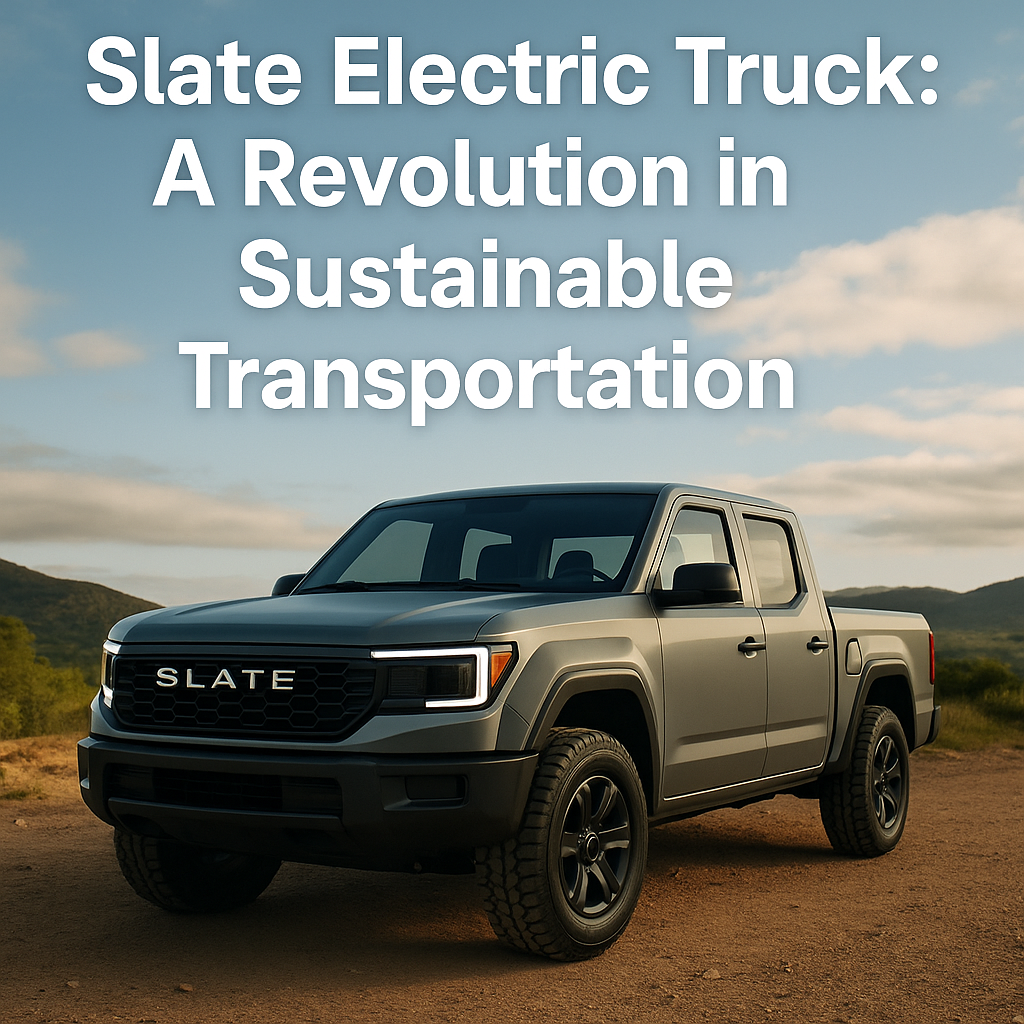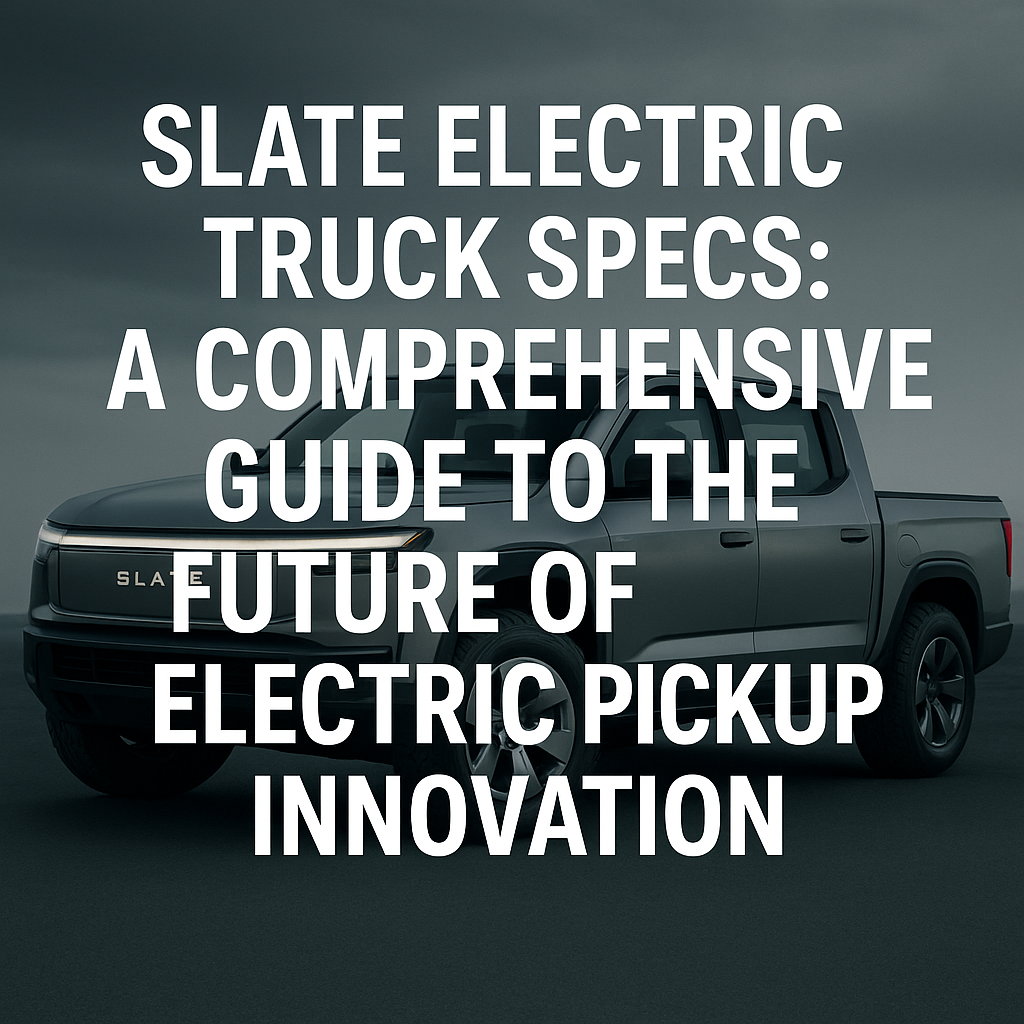Electric vehicles (EVs) have rapidly gained traction in the automotive world, offering sustainability, lower fuel costs, and impressive torque. However, when it comes to towing, many drivers face a common concern—range reduction. Towing a trailer, boat, or camper with an EV often leads to faster battery drain, but there are ways to optimize your towing experience.
In this guide, we’ll walk you through how to maximize range when towing with an EV, covering best practices, efficiency tips, and common mistakes to avoid.
Why Does Towing Affect EV Range?
Before exploring ways to maximize range, it’s important to understand why towing reduces EV mileage.
-
Increased Weight: Towing adds significant weight to your vehicle, making the powertrain work harder.
-
Aerodynamic Drag: Trailers increase wind resistance, especially at highway speeds.
-
Terrain Impact: Uphill roads strain your battery more when towing.
-
Regenerative Braking Limitations: EVs rely on regenerative braking to recoup energy, but towing heavier loads may reduce its effectiveness.
Top Tips to Maximize EV Range While Towing
1. Plan Your Route Strategically
Avoid steep inclines, mountainous areas, or routes with inconsistent elevations. Use apps like A Better Route Planner (ABRP), which allow you to input towing parameters to optimize your charging stops and range expectations.
2. Use an Aerodynamic Trailer
An aerodynamic trailer design can reduce wind resistance by up to 30%, which plays a significant role in EV range. Rounded edges, tapered fronts, and low profiles help your EV stay efficient even while towing.
3. Minimize Weight
Weight is the enemy of range. Eliminate unnecessary items from both the trailer and EV cabin. If you’re towing a camper, empty the water tanks and only carry essentials.
4. Drive at Moderate Speeds
Driving at 55–65 mph rather than 70+ mph drastically improves range. EVs are most efficient at lower speeds, especially when towing.
✅ Pro Tip: Use cruise control when possible to maintain steady speeds and reduce energy fluctuations.
5. Precondition Your Battery
If your EV supports preconditioning, activate it before reaching a charging station. A warmed-up battery improves charging speed and efficiency, especially useful during long hauls with multiple stops.
6. Use Regenerative Braking Wisely
Maximize regenerative braking during downhill descents or stop-and-go traffic. Many EVs allow you to adjust the regen level—choose the highest setting suitable for towing scenarios.
7. Keep Your Tires Properly Inflated
Underinflated tires increase rolling resistance. Check both your EV and trailer tires before every trip and maintain the manufacturer’s recommended pressure.
8. Avoid Sudden Acceleration
Heavy acceleration drains the battery faster. Accelerate smoothly and brake gently for improved efficiency and less strain on your EV’s powertrain.
Best EV Models for Towing with Good Range
While you can tow with many EVs, not all are created equal in efficiency. Here are a few top-performing electric trucks and SUVs known for balancing range and towing capacity:
| EV Model | Max Towing Capacity | EPA Range (Unloaded) |
|---|---|---|
| Ford F-150 Lightning (Extended) | 10,000 lbs | 320 miles |
| Rivian R1T | 11,000 lbs | 314 miles |
| Tesla Cybertruck AWD | 11,000 lbs | ~340 miles (est.) |
| GMC Hummer EV | 7,500 lbs | 314 miles |
| Chevrolet Silverado EV | 10,000+ lbs | 450 miles (est.) |
Note: Expect a 30–50% range reduction when towing near maximum capacity.
Charging Strategy While Towing
Plan Charging Stops
When towing, you’ll need to charge more frequently. Use apps to locate fast-charging stations compatible with your EV and trailer clearance.
Remove Trailer at Chargers (if needed)
Some chargers have tight access. Practice detaching your trailer quickly or choose stations with pull-through charging lanes.
Charge to 80%
Most EVs charge fastest up to 80%. Beyond that, charging slows down. Frequent shorter charges can be more time-efficient than maxing out each time.
Mistakes to Avoid When Towing with an EV
-
❌ Ignoring weight distribution: Poor weight balance can lead to inefficiency and safety hazards.
-
❌ Not testing before long trips: Always test towing range on shorter routes to set realistic expectations.
-
❌ Over-relying on manufacturer range claims: Real-world range while towing is usually 30–40% lower.
-
❌ Forgetting weather impact: Cold or hot temperatures drastically affect range and battery performance.
Frequently Asked Questions (FAQs)
Q1: Can all EVs tow trailers?
No. Only specific EVs are rated for towing. Always check the manufacturer’s towing capacity and ensure your vehicle has the proper equipment (tow hitch, trailer brake controller, etc.).
Q2: How much does towing reduce EV range?
Towing can reduce EV range by 30–50%, depending on the trailer’s weight, aerodynamics, road conditions, and driving style.
Q3: Can I charge my EV while the trailer is attached?
Yes, but it depends on the charger’s layout. Some public chargers are not trailer-friendly. Look for pull-through or side-access chargers to avoid unhitching.
Q4: What’s better for towing—an electric truck or SUV?
Electric trucks like the Ford Lightning or Rivian R1T generally offer higher towing capacities. However, SUVs like the Tesla Model X or Kia EV9 may suffice for light towing and provide better daily driving comfort.
Q5: Do regenerative brakes work while towing?
Yes, but effectiveness may vary. Heavy loads may reduce regen efficiency. Some EVs offer towing modes to optimize regen braking while carrying heavy loads.
Q6: Can I use solar panels to extend range while towing?
While possible in theory, solar panels on EVs or trailers offer minimal power output and are not yet practical for significantly extending range. However, they can be useful for auxiliary trailer systems (lights, AC, etc.).
Conclusion
Towing with an EV presents new challenges, but with proper planning, you can maximize your range and get the most out of your electric vehicle. Key strategies include driving smarter, reducing load and drag, using efficient charging habits, and knowing your vehicle’s limitations.
As EV technology evolves, towing capabilities and range will only improve—making electric towing a viable, greener option for road trips, camping, and work hauls.


